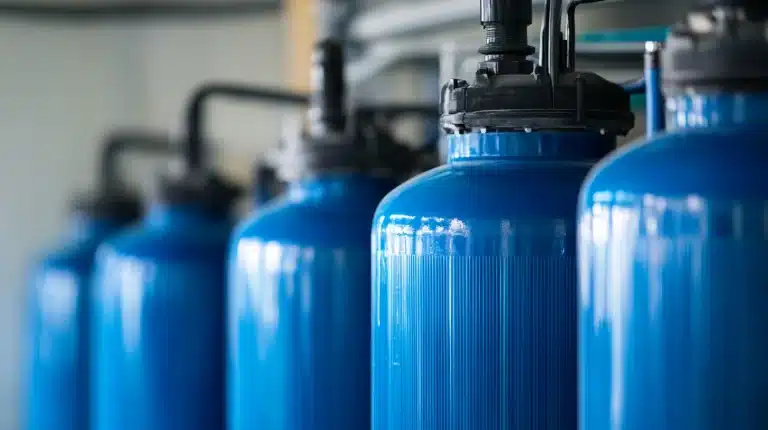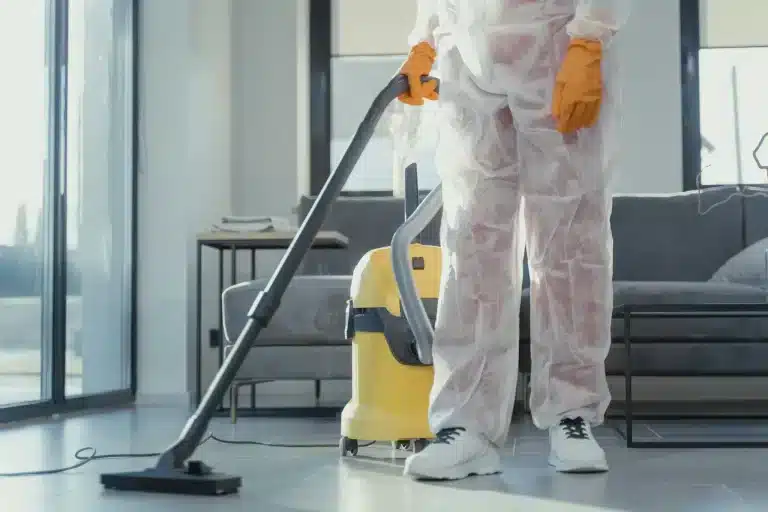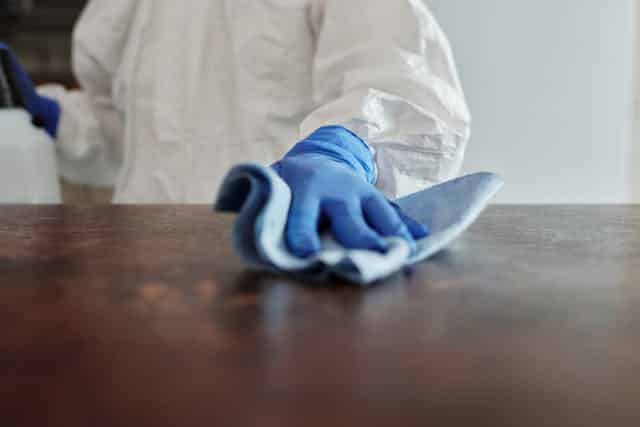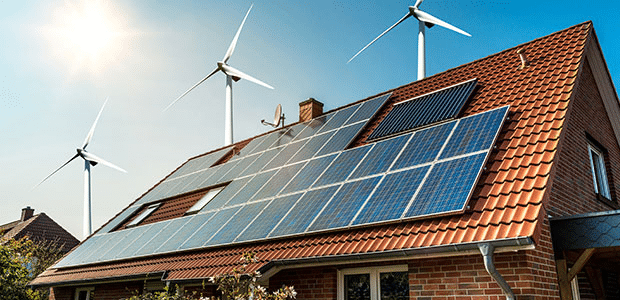As with many things in your home, a regular maintenance schedule is essential for your water softener system. Some tasks you can do on your own, while others are better handled by a professional plumber.
Keeping track of maintenance tasks that need to be performed on your water softener can ensure you take proper care of it and it continues to work effectively for a decade or longer.
Regularly Check Salt Levels
It’s ideal to check salt levels in your water softener system at least once a month, if not more. There needs to be an appropriate balance between the water and salt. For example, the water level should always be below the salt level.
The plumber who installs the water softener system can provide explicit instructions on keeping a proper water-to-salt ratio. If you have any questions, your trusted plumber is only a call away to assist, especially while you’re still getting used to maintaining the new system.
Clean the Brine Tank
We recommend cleaning the brine tank at least once a year, which is typically sufficient for standard use. However, suppose you’d rather not have to worry about cleaning it yourself. In that case, you can schedule a maintenance appointment, and an experienced plumber can clean the brine tank during their annual visit.
Inspect for Salt Bridges and Mushing
A salt bridge is a solid layer of salt that goes across the interior of your water softener system usually at the bottom of the brine tanks, preventing it from operating correctly. This issue tends to happen in high-humidity areas.
Mushing occurs at the interior bottom of the system and involves clumps of salt that may block the valve and can also keep the system from working properly. Both of these issues need a quick resolution to ensure your system doesn’t malfunction.
Flush the Resin Bed
The resin bed is also known as the grouping of resin beads inside the water softener system. Using a cleaning solution every two or three months to flush the resin bed can help maintain the effectiveness of your system. This is a task that you can do or — if you feel more comfortable — one that a professional plumber can do for you.
Sanitize the System Annually
The last thing you want is bacteria invading your water softener, especially considering you’re using that same water while you shower, brush your teeth, drink water, cook, wash your face, and do a variety of other tasks. Schedule maintenance service and a plumber can thoroughly sanitize your water softener system once a year, ensuring it’s safe for you and your family.
Replace Filters as Recommended
It’s a good idea to replace the filter of your water filtration system at the rate recommended by its manufacturer or installer. Not doing so means bacteria and other pollutants can contaminate your tap water. Make a note in your calendar to replace filters at the recommended intervals.
Check for Leaks in Pipes and Connections
Several issues can arise if water starts leaking from the pipes and connections of your water softener or filtration system, especially if the leak has been happening for a while before anyone noticed. A long-term leak could lead to significant damage within the surrounding area and result in mold growth, a costly problem to clean up that can significantly impact the health of you and your family.
The leak could also damage the water softener system. Depending on the extent of the damage, a repair may not be enough, and a replacement might be necessary. It’s one of the many reasons it’s beneficial to check the system frequently, especially if it’s in an area where you and other home residents don’t often go.
Schedule Professional Maintenance Check-ups
You should have a professional do a maintenance check on your water softener system and filtration system about once a year. This can allow your system to continue to work properly and give a plumber a chance to notice any potential problems as early as possible before they worsen.
However, you also want to keep an eye out for signs that you need a professional system check sooner rather than later.
For example, if you notice that your skin is itchy and dry for what seems like no reason, you see soap scum on your shower walls, or there’s hard water residue on your dishware, it’s time to call in a professional to determine what the issue could be.
It could be a simple solution, or there may be a more significant problem with your water softener system that needs immediate attention. Only a professional can determine what’s going on.
Whether you’re taking care of some of the maintenance tasks for your water softener system or filration system having a professional do all of them, the best way to keep up with the schedule is to set reminders in your calendar.
This ensures you stay on top of everything that needs to be done and can schedule professional appointments far enough in advance that you get the date and time you want. Staying on top of these water softener and filtration tasks is a much easier option than dealing with repairs or replacements if the system malfunctions.









